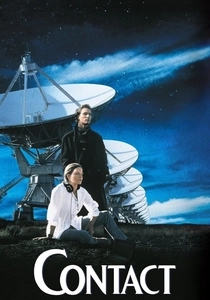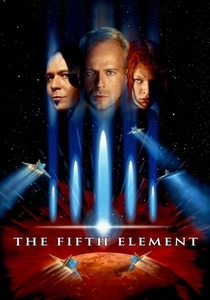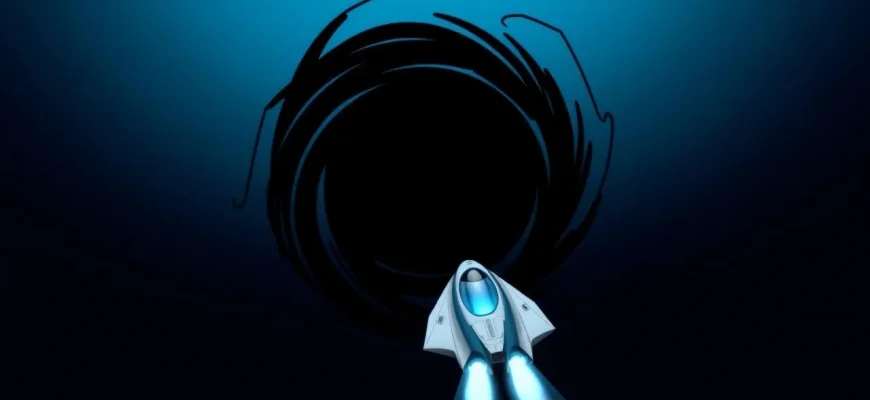The vast expanse of space has always captivated our imaginations, and black holes, with their enigmatic nature, are at the forefront of this fascination. This curated list of 10 films delves into the mysterious world of black holes, offering viewers a mix of scientific exploration, thrilling narratives, and visual spectacles. Whether you're a fan of hard science fiction or just love a good space adventure, these movies provide a unique perspective on one of the universe's most intriguing phenomena.

The Black Hole (1979)
Description: Disney's first foray into science fiction, this film follows a spaceship crew investigating a black hole and encountering a mysterious vessel. It's one of the earliest films to visually depict a black hole, albeit with artistic liberties.
Fact: The film was Disney's attempt to compete with "Star Wars." The black hole in the movie was created using a combination of practical effects and early CGI.
 Watch Now
Watch Now 
Contact (1997)
Description: Based on Carl Sagan's novel, "Contact" deals with the search for extraterrestrial intelligence and includes a sequence where the protagonist travels through a wormhole, which could be interpreted as a black hole-like phenomenon.
Fact: Carl Sagan was a scientific consultant for the film, ensuring the depiction of space travel was as accurate as possible. The film's ending, involving a journey through a wormhole, was inspired by Sagan's own theories.
 Watch Now
Watch Now 
Event Horizon (1997)
Description: While not strictly about black holes, "Event Horizon" deals with a spaceship that can create artificial black holes for faster-than-light travel, leading to horrifying consequences. It's a blend of horror and science fiction that explores the unknown aspects of black holes.
Fact: The film's director, Paul W.S. Anderson, initially wanted to make a film about a black hole but was advised to focus on the ship instead. The movie's title refers to the event horizon of a black hole, the point of no return.
 Watch Now
Watch Now 
The Fifth Element (1997)
Description: While not directly about black holes, the film features a scene where a spaceship is sucked into a wormhole, which can be seen as a black hole-like event, emphasizing the dangers of space travel.
Fact: The film's director, Luc Besson, was inspired by various sci-fi elements, including the concept of wormholes and black holes.
 Watch Now
Watch Now 
Mission to Mars (2000)
Description: This film involves a rescue mission to Mars where astronauts encounter an ancient alien artifact that uses a black hole-like portal for interstellar travel.
Fact: The film was criticized for its scientific inaccuracies, but the depiction of the black hole was an attempt to visualize complex space phenomena.
 Watch Now
Watch Now 
The Core (2003)
Description: Although primarily about the Earth's core, the film features a scene where the team uses a device to create a temporary black hole to navigate through the Earth's crust, showcasing the concept in a unique way.
Fact: The film's plot was inspired by a real scientific theory about the Earth's core stopping, but the black hole aspect was purely fictional for dramatic effect.
 Watch Now
Watch Now 
Sunshine (2007)
Description: This film involves a mission to reignite the dying sun, and while not explicitly about black holes, it explores the extreme conditions of space, including gravitational anomalies that could be related to black holes.
Fact: The film's writer, Alex Garland, consulted with scientists to ensure the depiction of space travel was as realistic as possible within the context of the story.
 Watch Now
Watch Now 
Star Trek (2009)
Description: The reboot of the Star Trek franchise features a Romulan mining ship creating a black hole to destroy planets, which sets the plot in motion. The film uses black holes as a plot device to explore alternate timelines.
Fact: The black hole in the film was created by a "red matter" device, a fictional substance designed to collapse matter into a singularity.
 Watch Now
Watch Now 
Interstellar (2014)
Description: Christopher Nolan's epic space adventure takes us through a wormhole near Saturn, exploring the concept of black holes and time dilation. The film's depiction of the black hole Gargantua was based on real scientific data, making it a must-watch for anyone interested in black holes.
Fact: The film's visual effects team worked with physicist Kip Thorne to ensure the black hole visuals were scientifically accurate. The movie also features a real-time simulation of a black hole's gravitational lensing effect.
 Watch Now
Watch Now 
The Day the Earth Stood Still (2008)
Description: In this remake, the alien spacecraft uses a black hole-like device to stop the Earth's rotation, showcasing the destructive power of such phenomena.
Fact: The original 1951 film did not include black holes, but the 2008 version added this element to modernize the story.
 Watch Now
Watch Now 








